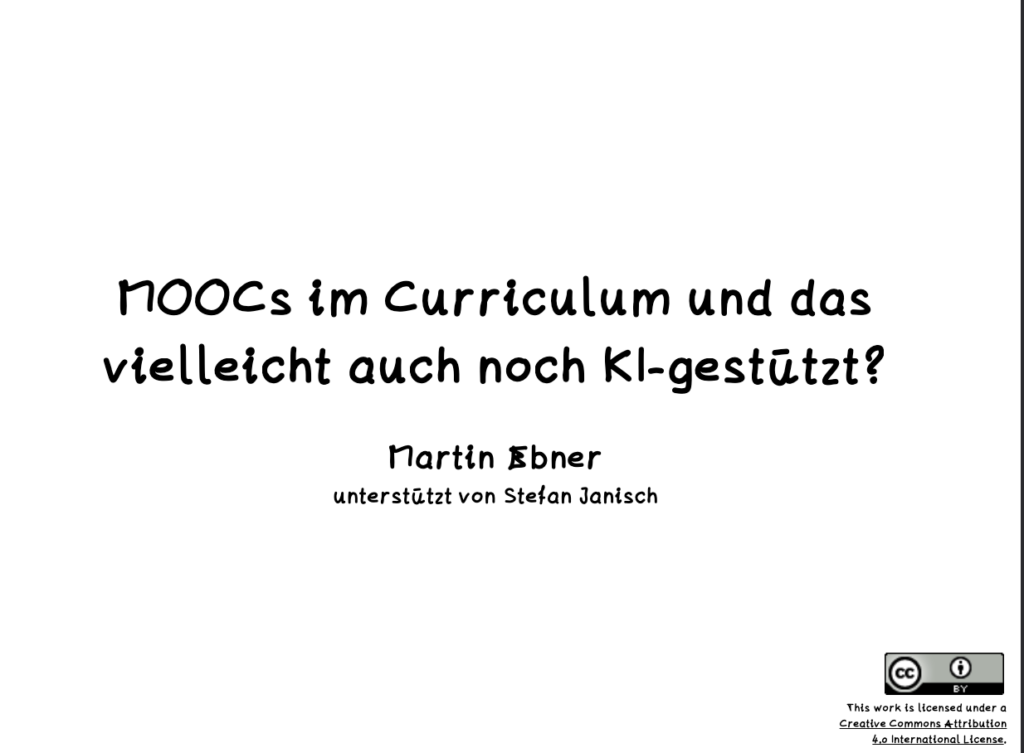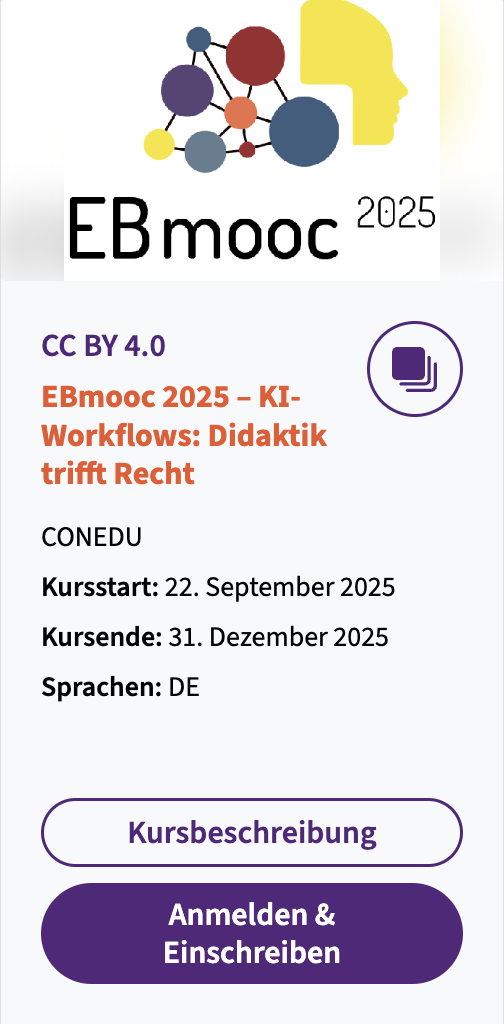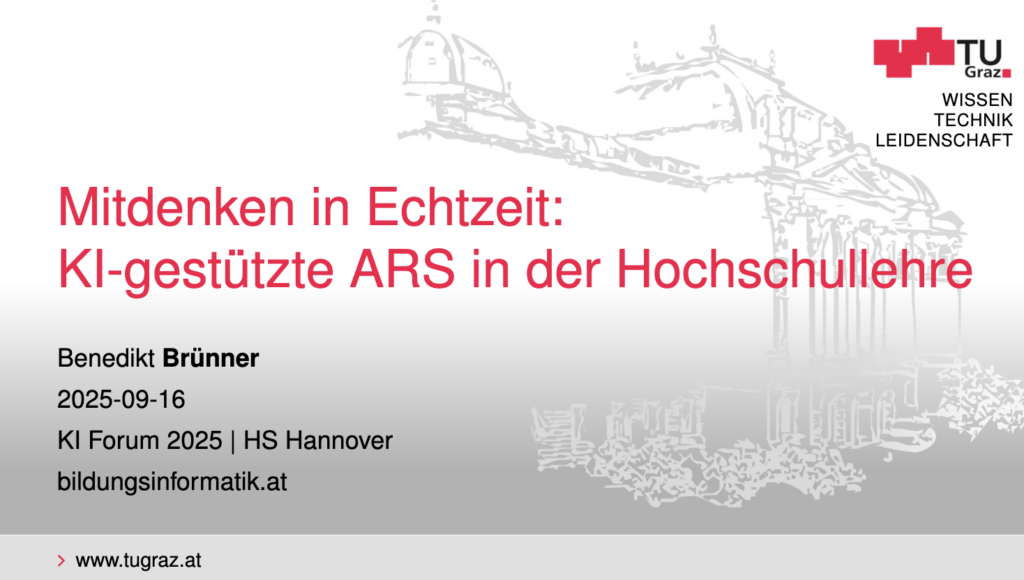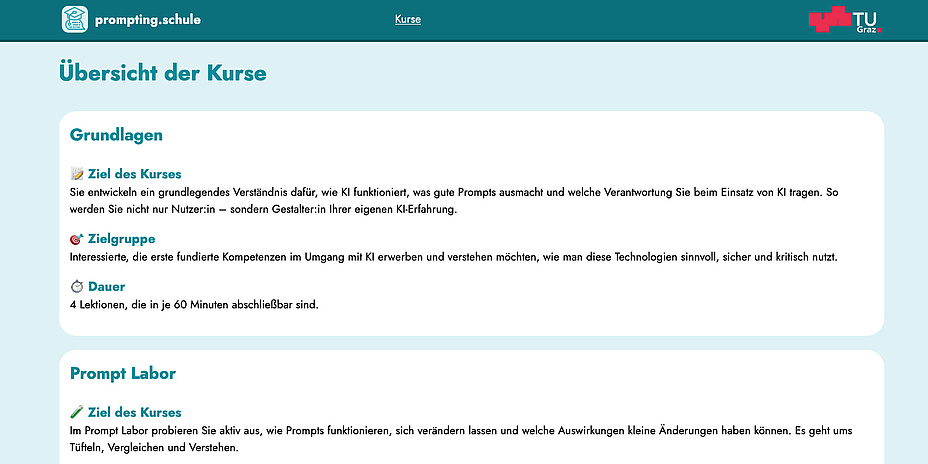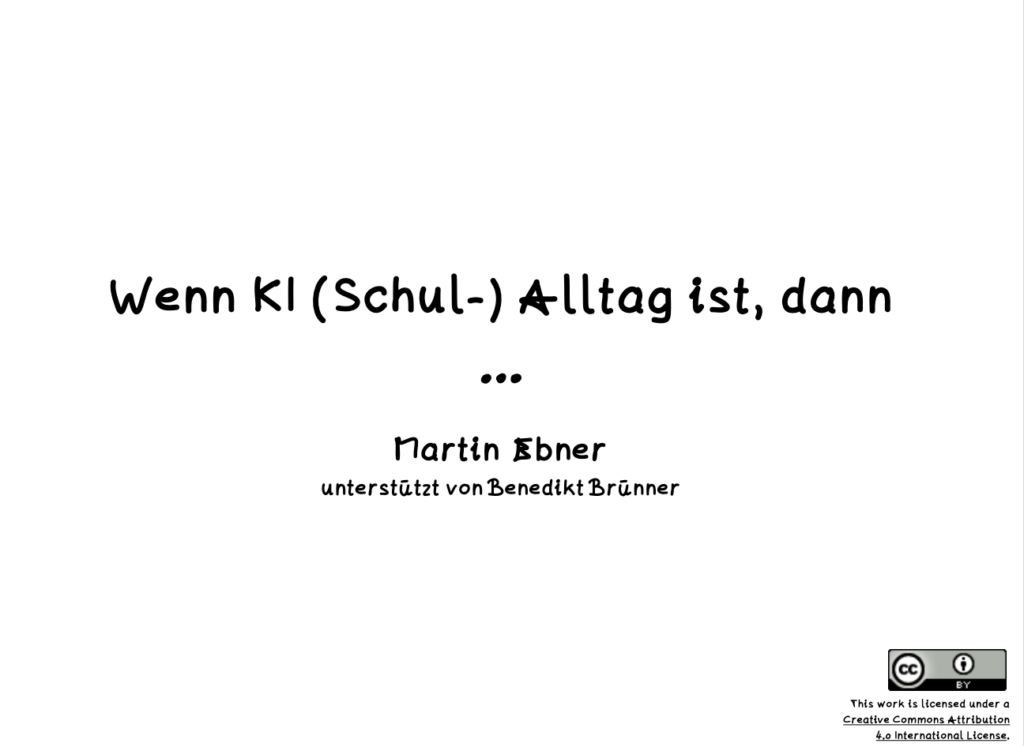Ein Beitrag der bis dato noch nicht veröffentlicht wurde von uns über „Künstliche Intelligenz und Learning Analytics als Herausforderung: Aufgaben von Ethikverantwortlichen und ethische Anforderungen beim Einsatz digitaler Technologien in der Hochschullehre“ ist jetzt als PrePrint einmal verfügbar:
Die Digitalisierung von Lern-, Lehr- und Studienprozessen hat große Auswirkungen auf mögliche Auswertungen und Nutzungen von Daten und Informationen. Beispiele hierfür sind etwa individuelle Lernempfehlungen, Prognosen oder Bewertungen. Dies geschieht in besonderer Weise, vermutlich zukünftig noch verstärkt im Kontext von Learning Analytics und beim Einsatz von Verfahren der künstlichen Intelligenz. Schon jetzt ergeben sich daraus auch vielfache ethische Fragen rund um die digitale Lehre und mögliche Herausforderungen der Datennutzung. Im Beitrag werden am Beispiel der Organisationseinheit Lehr- und Lerntechnologien der TU Graz diese Herausforderungen wie Datenschutz und mögliche Diskriminierung durch automatisierte Entscheidungsfindung dargestellt. Die Einrichtung eines Digital Ethics Officers (DEO) für die Organisationseinheit wird vorgeschlagen, um ethische Richtlinien zu entwickeln und deren Durchsetzung sicherzustellen. Insbesondere Learning Analytics und Künstliche Intelligenz bringen absehbar weitere ethische Fragen mit sich. Der Beitrag formuliert abschließend auf Grundlage der Forderungen einer Fachgruppe der Europäischen Kommission Anforderungen an eine Ethik der digitalen Hochschullehre, darunter die Achtung der menschlichen Autonomie, Schutz der Privatsphäre, technische Robustheit und Fairness. Der Beitrag versucht damit, die Diskussion zur Professionalisierung ethischer Fragen im technologiegestützten Lernen an Hochschulen voranzubringen.
[PrePrint @ Repository der TU Graz]
Zitation: Martin Ebner, Sandra Schön, David Andrews, Philipp Leitner und Stefan Thurner (2022). Künstliche Intelligenz und Learning Analytics als Herausforderung: Aufgaben von Ethikverantwortlichen und ethische Anforderungen beim Einsatz digitaler Technologien in der Hochschullehre (Preprint). Graz University of
Technology. DOI: 10.3217/3ej3a-j9j33
This is an impactful contributions, methodological rigor, and exceptional novelty in the research field of AI and Learning Analytics in education, especially for the German speaking area.

